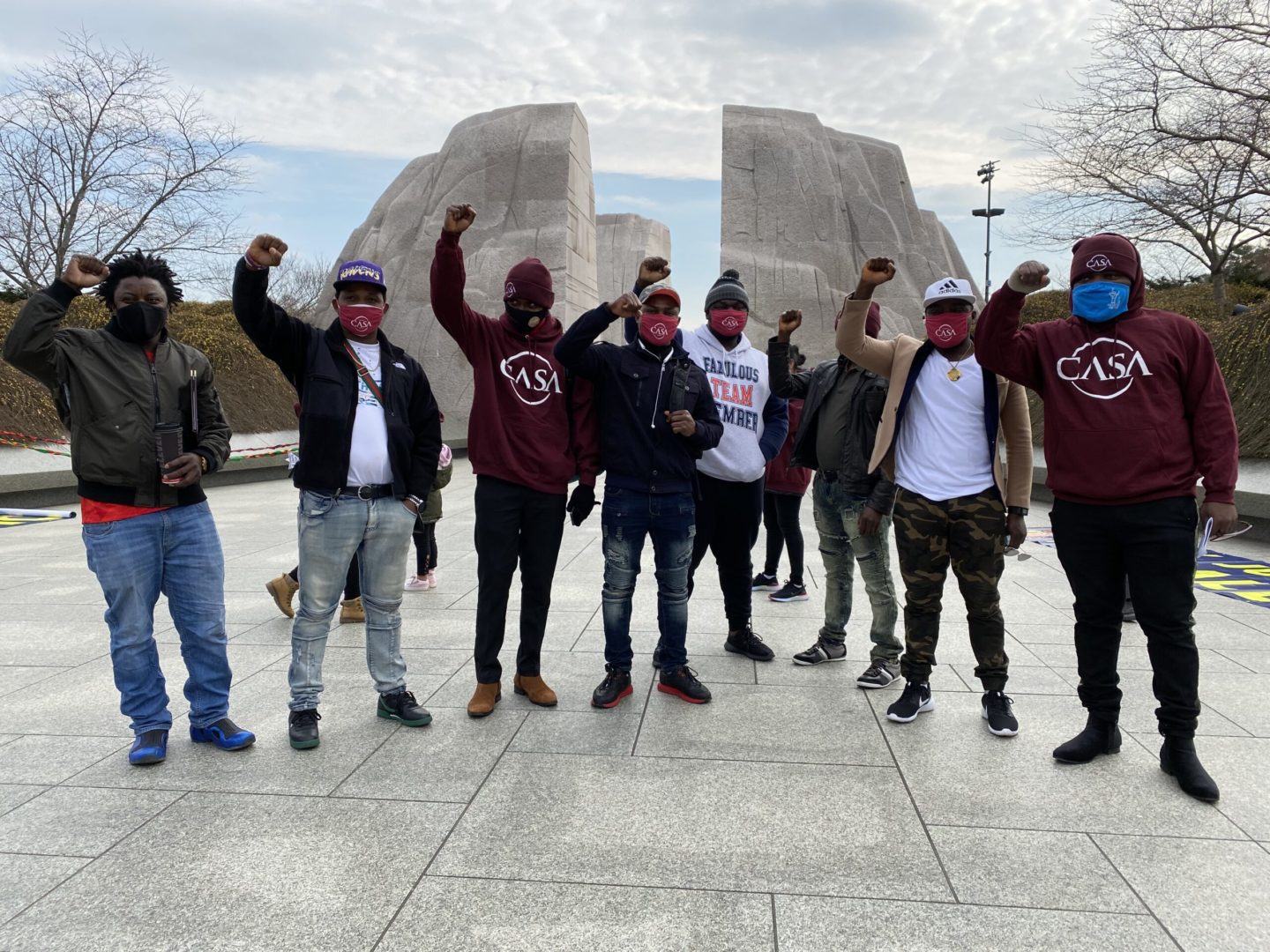Cameroon
Cameroon is currently facing both extraordinary and temporary conditions that warrant an immediate designation of either TPS or DED. The U.S. State Department has issued a level three travel warning for Cameroon with “Do Not Travel” notices for most regions of the country due to a high risk of, kidnapping, and armed conflict. Human Rights Watch estimates that 3.9 million people in Cameroon living in eight of its ten regions are in need of humanitarian assistance, with over 720,000 people displaced. Eighty-nine percent of the half a million internally displaced civilians were displaced due to armed conflict, and a staggering 64 percent of those internally displaced are children under eighteen. Cameroon is in the throes of several humanitarian crises, the consequences of which are compounded by the COVID-19 global pandemic. Cameroonian civilians are caught between multiple armed conflicts between the government, its Anglophone citizens, and Boko Haram, based near the Cameroon-Nigeria border. Boko Haram is known for its suicide bombings in crowded civilian areas, such as markets, schools, mosques, churches, and refugee camps. Over 720,000 people in Cameroon have attempted to flee the violence, many without a home to return to.
Guinea
There are extraordinary and temporary conditions in Guinea that prevent Guinean nationals (and persons having no nationality who last habitually resided in Guinea) from returning. Guinea has officially declared a new Ebola outbreak after at least three people have died and four others have been infected.1 Neighboring countries like Sierra Leone have activated emergency response systems and heightened surveillance for Ebola at the already closed border with Guinea. The World Health Organization (WHO) considers the risk of spread in the country as very high given the unknown size, duration and origin of the outbreak; potentially large number of contacts; potential spread to other parts of Guinea and neighboring countries; limited response capacity currently on the ground; and unknown virus strain.2 In addition, there are ongoing challenges for the public health system due to the COVID-19 epidemic, and recent yellow fever and measles outbreaks.
Guatemala, Nicaragua, Honduras and El Salvador
On November 4, 2020 Hurricane Eta made landfall in the Atlantic coast of Nicaragua as a category 4 hurricane and weakened to a tropical depression before entering Honduras. Two weeks later, and only 15 miles apart, Hurricane Iota made landfall again in the Atlantic coast of Nicaragua as a category 4 storm. Both hurricanes impacted Central America with strong winds and heavy rains damaging critical infrastructure such as airports in Honduras, hospitals, schools, bridges, roads, and water systems. Remote communities, already suffering from the health and socio-economic fallout of COVID-19 are particularly vulnerable to the double burden of a pandemic and the devastation wrought by Eta and Iota. Initial reports of the impacts of both Hurricanes Eta and Iota on these countries estimate even greater devastation than what Hurricane Mitch caused. The aftermath of these storms are emerging as a major humanitarian crisis in Central America. More than 4.9 million people from Panama to Belize are affected. The most severe impacts are being felt in Honduras, Nicaragua, and Guatemala, but also several areas in El Salvador. In all the affected areas, the communities most impacted are Black and Indigenous: Garifuna, Miskito, many indigenous groups who already suffer from historical patterns of exclusion and discrimination, resulting in disproportionate levels of poverty and geographic isolation.
The region is plagued by corruption, often tied to the organized crime syndicates behind the drug trade. Persistent citizen protests and the airing of scandals seem to have little impact on systems that perpetuate graft. For years, Central America has contended with the violence and corruption stemming from organized crime and the drug trade. The administrations in Guatemala, Honduras and Nicaragua are all facing challenges to their political legitimacy. That could either fuel transformation or provoke a backlash. In El Salvador, the president is using the pandemic to undermine the country’s civil liberties and institutions.
Haiti
Extraordinary and temporary conditions exist that make it unsafe to deport or expel anyone to Haiti. With a former president who refuses to step down and daily violent and massive protests, Haiti is undergoing a major uprising. The Trump Administration wrongfully tried to end TPS for Haitians; it is now time for the Biden Administration to make things right and re-designate TPS for Haiti. Both President Donald Trump and now President Biden promised to be a champion for Haitian-Americans on their campaign trails in Florida. Both have broken their promises. When Trump took office, he referred to Haiti as a “shiithole country,” and then tried to terminate TPS for Haitians despite clear evidence from his own State Department that Haiti was unprepared to receive deportees due to a severe housing shortage and public health crisis following the 2010 earthquake, Hurricane Matthew and a cholera epidemic brought on by United Nations peacekeeping soldiers. Currently, the State Department has a level 4 travel advisory for Haiti, labeling Haiti as dangerous as conflict zones such as Afghanistan, South Sudan and Somalia. Nation-wide unrest and political turmoil have increased significantly since 2018, and have brought Haiti “on the verge of explosion.”
Mauritania
Mauritania is currently facing extraordinary conditions that warrant an immediate designation of either TPS or DED. While Mauritania criminalized slavery in 2007 — the last country in the world to do so — the practice of ensalving Black Mauritanians continues widely, with at least 90,000 people in Mauritania currently enslaved. The United Nations estimates that the number of people enslaved in Mauritania is much higher, with up to 680,000 out of a total population of 3.4 million. Even when taking more conservative estimates into account, Mauritania’s population has one of the highest percentages per capita of enslaved populations in the world. In early 2020, there were multiple documented cases of enslaved children escaping bondage, only to be ordered returned to their so-called “masters” by local courts. In Mauritania, people who are enslaved inherit their status so that even those who may escape are subjected to severe discrimination as a result of the racial caste and legal systems. Other human rights issues that make it impossible for women in the United States to be safely returned to Mauritania include the prevalence of child marriage — with 37 percent of girls in Mauritania married before age 18 and 18 percent married before age 15 — and widespread practice of female genital mutilation.
Nepal
Former DHS Secretary Jeh Johnson first designated Nepal for TPS in 2015 following a 7.8 magnitude earthquake and a number of significant aftershocks that struck the country, killing nearly 9,000 people, injuring more than 20,000 people, displacing millions, and destroying or significantly damaging over 750,000 homes. Its designation was extended for 18 months in 2016. The Trump Administration terminated TPS for Nepal in May 2018. Career officials at USCIS originally described the termination decision as a “close call” but ultimately recommended termination after agreeing, under pressure from political appointee Kathy Nuebel Kovarik, “not to devote research” to political crises and other ongoing disasters in Nepal that were not directly related to the earthquake that triggered the original designation.3 Had USCIS conducted a comprehensive assessment, it would have been clear that an extension was compelled. Since the earthquake, Nepal has been hit twice by catastrophic floods, first in 2017 and again in 2020. The floods slowed recovery from the earthquake and contributed to food insecurity in a country that “remains one of the poorest countries in the world. . . 4.6 million people are food-insecure. More than 40 percent of Nepalese children younger than five years of age are stunted and 10 percent suffer from wasting as a result of acute malnutrition.” Nepal also lacks adequate housing as a result of these continuous issues. The State Department has found that the government of Nepal has engaged in human rights abuses, including arbitrary/unlawful killings and the fallout from previous civil conflict. A serious political conflict is now unfolding, with the Prime Minister suddenly dissolving parliament in December 2020 and an impending constitutional crisis. In light of these conditions, 81.5 percent of Nepali TPS holders surveyed agreed or strongly agreed that “If I returned to Nepal, I would be concerned about the physical safety of myself and my family.” Nepal also lacks adequate housing and Nepalese citizens suffer from water and food insecurity.
Sierra Leone
While the EVD epidemic is no longer at its peak, the resurgence in Guinea alongside the COVID-19 pandemic have potentially severe health outcomes in Sierra Leone. The COVID-19 pandemic, its secondary socio-economic consequences and a severe decrease in crop production have severely compounded the food insecurity crisis.4 The recent outbreak of Ebola in Guinea is likely to have a ripple effect throughout West Africa, striking fears of new outbreaks in Sierra Leone5 or future restrictions on cross-border trade, further exasperating the economic crisis.6 There is a major impact on food access and food security of vulnerable households with a likely 1.4 million people impacted by highly acute food insecurity.7
Sudan
While Sudan is transitioning to democratic rule following the ouster of President Omar al-Bashir in 2019, violence continues to surge throughout the country along with protests for reform.8 Violence continued in regions of Sudan, such as in Darfur and eastern Sudan.9 There has been new armed conflict between Arab and Masalit communities that have flared since December 2019. Armed militia groups have attacked and displaced people and including children, raped women, and girls, destroyed schools, and burned homes, causing tens of thousands to flee. 2020 was marked by a failing economy, political tensions and continuing popular protests for justice and reforms. These challenges were compounded by the Covid-19 pandemic.
South Sudan
There continues to be ongoing armed conflict and extraordinary and temporary conditions in South Sudan that prevent nationals from returning safely. In March of 2021, the UN Security Council reported increased violence between governmental forces and armed opposition groups in various parts of South Sudan, killing and displacing thousands. Sexual and gender-based violence continues to bel used as a tactic by parties of the conflict against civilian populations, including rape, sexual slavery and sexual torture. According to the 2021 South Sudan Humanitarian Needs overview, an estimated 7.2 million south Sudanese people will face severe food insecurity by mid-2021.10
Syria
In Syria, social and economic conditions remain hostile to all, and particularly to Syria’s lower, middle, and working classes. The collapse of Syria’s formal political system has opened the country up to war profiteering a fact of life in many regions. Nearly 60 percent of Syria’s population – nearly 11.1 million people, half of whom are children – have never lived a day in their life without war. They require humanitarian assistance to account for the ill-functioning primary health care centers, depleted healthcare workforce, 230 percent increase in the cost of an average food basket, and collapse of Syria’s energy products sector. These conditions have only worsened since then-DHS Acting Secretary David Pekoske conducted a close investigation of Syria’s social conditions before announcing an extension of TPS. The United Nations (U.N.) Secretary-General Antonio Guterres described Syria as “a living nightmare” in which innocent civilians have “endured some of the greatest crimes the world has witnessed this century.”
The Bahamas
Hurricane Dorian, a Category 5 hurricane and one of the strongest Atlantic hurricanes in recorded history, first made landfall on the Bahamas on September 1, 2019. It moved across the islands, languishing over Grand Bahama for days. With sustained winds of 185 mph, Dorian was the strongest hurricane on record to strike the Bahamas causing death and injury, widespread destruction, mass displacement of residents, and serious disruption of living conditions across the Bahamas; it affected over 76,000 people. A TPS designation would provide protection for approximately 14,000 Bahamian in the United States.The Bahamian government and international aid organizations acknowledged conditions are still dismal. Across the Bahamas, search-and-rescue crews were only able to search a fraction of the previously inhabited areas.
Yemen
In Yemen, six years of war and Saudi-led economic blockade has created the worst humanitarian crisis in the world. The country’s population of 30 million people are reliant upon humanitarian aid, amid cratered food imports, rampant fuel shortages, lack of access to clean water or electricity, and military conflicts which have killed 230,000 people. The sum total of these conditions are afflicting the most vulnerable. According to the United Nations, 400,000 children under the age of 5 could perish from hunger this year along. Furthermore, many in Yemen are still suffering from polio, leaving them distrusting of established healthcare institutions and, as a result, more vulnerable to the spread of coronavirus.
–
1 Caley Petesch, “Guinea declares Ebola epidemic, neighboring countries act” Associated Press, available at: https://apnews.com/article/liberia-julius-maada-bio-health-guinea-ebola-virus-ede99ac43739832a3cf56041868e1cfa
2 World Health Organization, “Ebola virus disease – Guinea” available at https://www.who.int/csr/don/17-february-2021-ebola-gin/en/
3 Complaint, Bhattarai v. Nielsen, Case No. 19-cv-731, at ¶¶ 66-67.
4 Hunger Hotspots; FAO-WFP early warnings on acute food insecurity; Food and Agricultural Organization of the United Nations (March to July 2021 outlook) available athttp://www.fightfoodcrises.net/fileadmin/user_upload/fightfoodcrises/doc/resources/Hunger-Hotspots-March-2021.pdf
5 Caley Petesch, “Guinea declares Ebola epidemic, neighboring countries act” Associated Press, available at: https://apnews.com/article/liberia-julius-maada-bio-health-guinea-ebola-virus-ede99ac43739832a3cf56041868e1cfa
6 Hunger Hotspots (2/15/2021) available at https://www.msn.com/en-us/health/medical/guinea-declares-ebola-epidemic-neighboring-countries-act/ar-BB1dHAoi
7 Id
8 “Sudan, Events of 2020,” Human Rights Watch, available at: https://www.hrw.org/world-report/2021/country-chapters/sudan
9 “West Darfur: Investigation Into Krinding Camp Massacre Is Urgently Needed” African Centre for Justice and Peace Studies, available at: https://www.acjps.org/west-darfur-investigation-into-krinding-camp-massacre-is-urgently-needed/
10 Resolution 2572, United Nations Security Council at 21 (Adopted 12 March 2021) available at https://www.securitycouncilreport.org/atf/cf/%7B65BFCF9B-6D27-4E9C-8CD3-CF6E4FF96FF9%7D/s_res_2567.pdf







